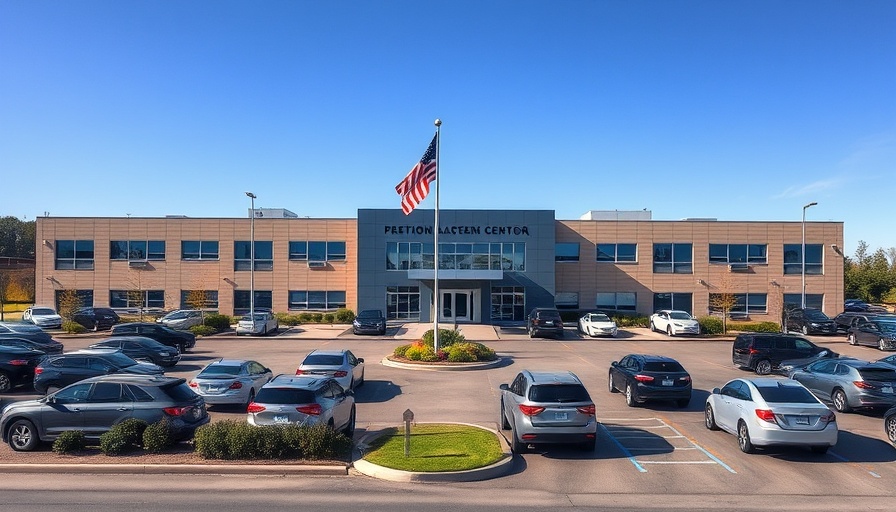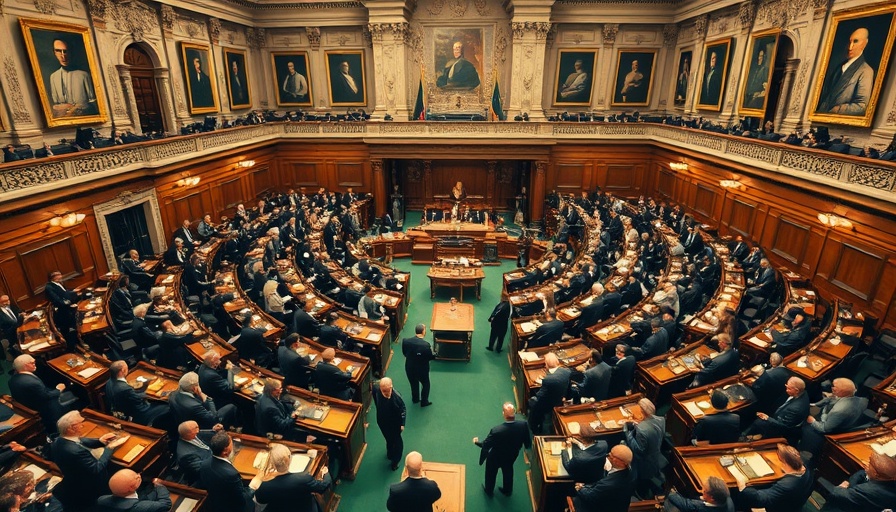
Unveiling the Cornhusker Clink: A New Chapter in Immigration Enforcement
The U.S. Department of Homeland Security (DHS) recently announced plans to establish the "Cornhusker Clink," a new detention center located in the small town of McCook, Nebraska. This initiative coincides with the Trump administration's expansion of immigration enforcement policies, which have garnered considerable attention and sparked heated debates across the nation.
Understanding the Implications of the Cornhusker Clink
The proposed Cornhusker Clink aims to accommodate the projected increase in detainees as enforcement efforts ramp up. DHS Secretary Kristi Noem, who championed the development of this facility, emphasized that illegal immigrants may find themselves at the Cornhusker Clink if they do not voluntarily leave the country. This announcement has raised alarms among immigration advocates who argue that such aggressive measures may lead to more families being torn apart.
The Broader Context: Immigration Enforcement Under Trump
Since taking office, President Trump has instituted a hardline approach to immigration, prioritizing the deportation of undocumented individuals and tightening border security. The Trump administration has maintained that this strategy is essential to national security and public safety. However, critics argue that it demonizes immigrants and threatens American values.
Reactions from Across the Political Spectrum
Supporters of the Trump administration hail the new detention center as a necessary move, reinforcing the stance that illegal immigration undermines economic stability and public order. Conversely, opponents view it as a harmful step that contributes to fear and uncertainty among immigrant communities. The stark divide between these perspectives highlights the contentious nature of immigration policy in the U.S.
A Historical Perspective on Detention Centers
Detention centers in the U.S. are not a novel concept; their history runs deep. The foundation of such facilities dates back decades, aimed at addressing various immigration crises. Yet, the expansion seen under the Trump administration marks a significant shift towards larger, more permanent facilities designed to house tens of thousands. This raises critical questions about human rights, due process, and the treatment of detainees.
What Lies Ahead: Immigration Trends and Future Predictions
As the Cornhusker Clink prepares to open its doors, many are left to ponder the implications for countless lives affected by immigration law. Future immigration trends suggest that demands for legal pathways will continue to grow. Experts predict that communities must brace for ongoing policy changes, which could further polarize public opinion on immigration.
Community Voices: Concerns and Hopes
The establishment of the Cornhusker Clink may disrupt the lives of many families in Nebraska. Local residents express a mix of apprehension and support, reflecting a community grappling with the potential for increased federal enforcement. Concerns about economic implications, social cohesion, and community safety versus individual rights and humane treatment of all individuals echo through local discussions.
Actionable Insights for the Community
What can concerned community members do in response to the creation of the Cornhusker Clink? Engaging with local advocacy groups, attending town hall meetings, and voicing support for humane immigration policies are steps individuals can take to influence the conversation. By fostering a dialogue within their communities, residents can work towards solutions that balance security with compassion.
Closing Thoughts on Immigration Policy in America
The unfolding narrative around the Cornhusker Clink presents a pivotal moment in the ongoing immigration debate in America. As policies evolve and communities absorb the outcomes, it remains crucial for citizens to stay informed and engaged in shaping a future that respects human dignity while addressing national security concerns. Join the conversation on immigration reform and help advocate for compassionate policies that reflect American values.
 Add Element
Add Element  Add Row
Add Row 



Write A Comment